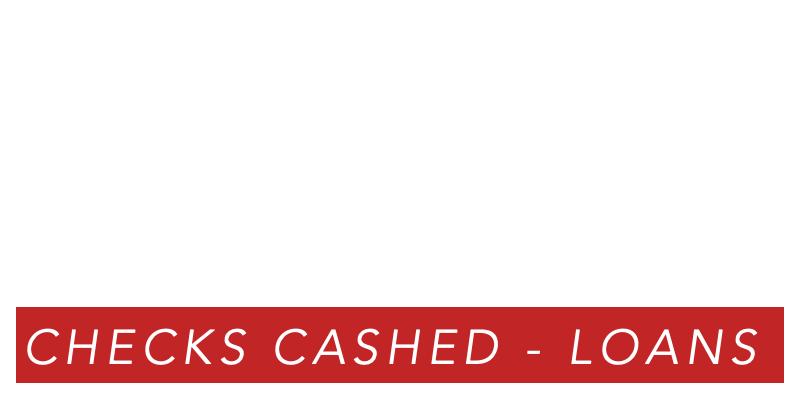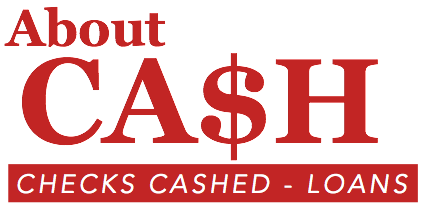Cashing Insurance Checks Without A Lienholder in Texas 2025
-
AboutCash > News > Check Cashing > Cashing Insurance Checks Without A Lienholder in Texas 2025
Cashing Insurance Checks Without A Lienholder in Texas 2025
Navigating the aftermath of an accident or property damage can be as traumatizing as the incident itself. Especially when it involves cashing an insurance check with a lienholder’s name on it. The question often arises: can you cash this check without the explicit consent or endorsement of the lienholder?
There are situations in which you can cash a check without a lienholder, although they are rare. The answer isn’t straightforward and requires a clear understanding of lienholder rights and the conditions under which you can cash an insurance check with no lienholder. For example, when you’ve paid a loan off and own an asset outright.
Knowing when you can legally and safely cash an insurance check without a lienholder can save you from potential legal troubles and financial mishaps. That way, your assets remain protected while you navigate the claims process.
This article aims to provide context and professional guidance for cashing insurance checks without a lienholder in Texas in 2024. We will delve into the legal framework, outline the specific conditions that must be met, and provide you with the knowledge to handle these situations confidently.
Understanding Insurance Checks and Lienholders
When accidents arise, they cause significant stress and liability. They also require you to navigate the process of cashing and using insurance checks.
Insurance checks are typically issued after a claim is filed and approved. They represent the insurer’s payment for repairs, replacements, or recovery of insured assets like vehicles or property.
However, when these assets are financed or have a lien against them, the insurance check often involves a third party: the lienholder. Lienholders are usually financial institutions, lenders, or individuals who have a vested interest in the asset until the debt owed is fully paid off. In most cases, the insurance check is made payable to both the policyholder and the lienholder, ensuring the lienholder’s interest is protected.
The involvement of a lienholder in the insurance claim process is not just a formality. It’s a legal requirement that safeguards the lienholder’s investment. If a car or a home is damaged and needs repair, the lienholder has an inherent interest in ensuring that the asset is restored to its pre-damaged condition. This process helps maintain the asset’s value, which serves as collateral for the loan or financial agreement.
Therefore, when an insurance check is issued, the lienholder’s endorsement is typically required to cash the check, ensuring the funds are used for the intended repairs.
The process is designed to be a collaborative effort to protect the interests of both the policyholder and the lienholder, aiming for a resolution that restores the asset while respecting the financial stake of the lienholder.
Benefits of Lienholders for Insurance Checks
While sometimes seen as a bureaucratic hurdle, the involvement of lienholders in the process of cashing insurance checks actually provides several benefits. These benefits protect both the asset owner and the lienholder.
This collaboration ensures that the funds from insurance claims are used appropriately and that the asset’s value is preserved. Ultimately, they offer a structured and secure approach to managing claims and repairs.
Benefits of including lienholders on insurance checks include:
Ensures Proper Use of Funds
When a lienholder is included on an insurance check, it guarantees that the funds are used to repair the damaged asset rather than being diverted for other purposes. The lienholder’s involvement ensures that the asset is restored to its pre-damaged condition. The money goes to maintaining the value and the security of the lienholder’s investment.
Maintains Asset Value
For assets under a loan or a financing agreement, maintaining their value is in the owner’s and the lienholder’s best interest. The lienholder’s requirement to endorse insurance checks ensures that any damage to the asset is fixed correctly, thereby preserving or restoring its value.
Prevents Financial Disputes
Involving lienholders in the insurance check cashing process minimizes potential disputes between insurance companies, asset owners, and lienholders. The lienholder’s endorsement of the check reduces the likelihood of disagreements over the settlement amount or how it should be used.
Streamlines the Repair Process
Lienholders often have established networks and relationships with repair companies or contractors. Their involvement can help streamline the repair process, ensuring the work is done efficiently and to a high standard.
In essence, the presence of lienholders in the insurance claim process acts as a stabilizing force. It ensures that the insurance funds are used appropriately and that the asset’s value is protected. This collaborative approach benefits all parties involved, providing structure and security in what can otherwise be a complex and stressful situation.
The Legal Guidelines for Insurance Checks in Texas
In Texas, the legal parameters surrounding insurance checks and lienholders are designed to protect the interests of all parties involved: the insurer, the insured, and the lienholder. These regulations uphold the rights and responsibilities of each stakeholder.
Understanding these legal nuances is crucial for anyone navigating the insurance claim process, especially in situations involving financed assets.
Endorsement Requirements
Texas law typically requires that insurance checks issued for claims on properties or assets with a lien must be endorsed by both the policyholder and the lienholder.
This dual endorsement is a safeguard to ensure that the funds are used to repair, replace, or pay off the asset, thereby protecting the lienholder’s financial interest in the property.
Right to Proceeds
Lienholders in Texas have a legal right to the proceeds from an insurance claim up to the debt owed. If an asset, such as a vehicle or a home, is damaged or totaled, the lienholder is entitled to receive the insurance payout to protect their investment.
This legal parameter ensures that the lienholder can recover their investment before any excess funds are disbursed to the policyholder.
Notification and Consent
Under most situations, Texas law mandates that the lienholder be notified of any insurance claims and settlements. This requirement is in place to allow the lienholder the opportunity to participate in the claims process, provide consent for repairs, or negotiate the settlement amount.
This legal stipulation ensures transparency and involvement of the lienholder, aligning with their right to protect their financial interest in the asset.
Dispute Resolution
Texas law provides mechanisms for dispute resolution in the event of a disagreement between the policyholder, the insurer, and the lienholder regarding the insurance claim or the disbursement of funds.
These may include mediation, arbitration, or legal proceedings. The objective is to provide a structured avenue for resolving conflicts while protecting the rights of all parties involved.
Circumstances Where You Can Cash Insurance Checks Without a Lienholder
Cashing an insurance check without a lienholder’s endorsement is generally the exception rather than the rule. However, there are specific circumstances under Texas law where it may be possible.
Understanding these scenarios is essential to ensure that you act within legal bounds. Cashing a check without a lienholder could inadvertently expose yourself to potential legal or financial risks.
Loan Payoff
If the loan or mortgage on the asset has been fully paid off, there is no longer a lienholder’s interest to protect. In such cases, the insurance check may be issued solely to the policyholder.
It’s important, however, that all paperwork reflecting the loan payoff is complete and that the lien release is recorded correctly. The policyholder should have documentation proving that the lien has been satisfied.
Minimal Damage Claims
Insurance companies may issue the check directly to the policyholder for minor damages where repair costs are below a certain threshold.
However, this threshold varies. It’s crucial to understand the specifics of your insurance policy and any agreements with the lienholder. Sometimes, the lienholder may still require notification and the opportunity to inspect the damage before endorsing the decision to bypass their involvement.
Specific Lienholder Agreements
Some lienholders may have specific contract clauses that allow the policyholder to cash insurance checks under certain conditions without requiring their endorsement.
These cases could include situations where the lienholder has pre-approved certain repairs. Or, when the lienholder has pre-authorized the policyholder to receive funds up to a certain amount.
Deductible Coverage
In some cases, where the insurance check is meant to cover only the deductible portion of a claim. The rest is settled directly between the insurance company and the lienholder or repair facility. Here, the policyholder might be able to cash the check without the lienholder’s endorsement.
This situation is possible because the lienholder’s interest is usually covered by the insurer’s direct payment to the repair facility.
Risks and Considerations for Cashing an Insurance Check Without a Lienholder
Cashing an insurance check without a lienholder’s endorsement, while possible under certain conditions, carries inherent risks and considerations. It’s crucial to approach this action with a full understanding of the potential repercussions. This understanding helps avoid legal complications or financial loss.
Here are some of the key risks and considerations to keep in mind:
Breach of Contract
Your agreement with the lienholder typically includes clauses requiring involvement in the insurance claims process. Cashing a check without their endorsement might constitute a breach of this agreement, leading to potential legal action or demands for immediate repayment of the loan.
Insurance Fraud
Insurance companies expect the funds they provide to be used to repair the assets they insure. Using the funds for other purposes could be construed as insurance fraud. Fraud is a serious offense that can result in legal penalties, including fines or imprisonment.
Disputes Over Repair Quality
When a lienholder is involved in the claims process, they often oversee or approve repair work to ensure it meets specific standards, protecting the asset’s value. If you cash the check without their involvement, you assume full responsibility for the quality of repairs. Any diminution in the asset’s value due to inadequate maintenance could lead to disputes or financial loss.
Financial Liabilities
If the insurance check does not cover the total amount owed to the lienholder and the funds are not used appropriately, you could owe more than the original debt. This situation can arise if the asset is further damaged or its value decreases due to insufficient repairs.
Complexity in Future Claims
Cashing an insurance check without a lienholder’s endorsement can complicate future claims. Insurance companies and lienholders may view your actions with suspicion. Further, this could potentially lead to increased scrutiny, delayed claim processing, or refusal of future claims.
Relationship with Lienholder
Sidestepping a lienholder in the claims process can strain or damage your relationship with them. This can have long-term consequences, affecting your ability to secure loans or negotiate favorable terms in the future.
Get Expert Advice and Financial Solutions in Texas with About CA$H
Navigating the complex terrain of insurance claims, especially when it involves understanding the nuances of lienholder involvement, can be daunting. The stakes are high, and the legalities are intricate.
But you don’t have to navigate this journey alone. About CA$H is your trusted partner, offering expert advice and tailored financial solutions that cater to your unique needs in Texas.
Don’t let the complexities of insurance claims overshadow your peace of mind. Reach out to About CA$H today and take the first step towards navigating your financial journey with confidence and clarity.
Categories
Categories
- Cash Advance Loan (1)
- Check Cashing (3)
- FAQ (1)
- Title Loan (3)
- Uncategorized (2)

